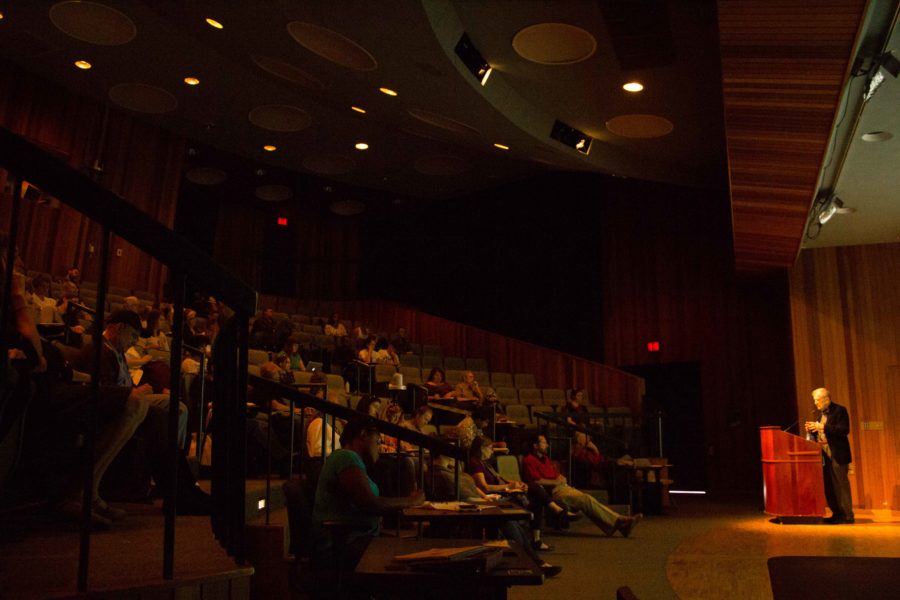One out of five soldiers returning home from Afghanistan and Iraq will develop Post Traumatic Stress Disorder (PTSD), a psychological condition where traumatic events imprinted within the survivor’s mind can provoke a fight or flight response along with developing other life-threatening conditions such as sleep apnea and insomnia.
Dr. Stanley Krippner came to SRJC Nov. 5 to show students early warning signs of PTSD-related behavior and how survivors can overcome this condition by adjusting the way they cope with their nightmares.
Krippner is friend to SRJC psychology professor Dr. Jürgen Kremer, who said Krippner often helped set up psychology workshops in Germany with Kremer 30 years ago. Krippner has since worked with PTSD survivors and authored the book, “Haunted by Combat: Understanding PTSD in War Veterans.”
Terror After Combat: Identifying and Treating PTSD Nightmares in War Veterans was designed to teach students how PTSD can form either with or without combat trauma and possible reactions survivors display when the condition emerges. Krippner also displayed previous versus current treatment methods, and how a person suffering from PTSD can overcome it.
According to Krippner, PTSD is “anything that can injure a person psychologically, physically or both, and have problems recovering from them.” PTSD, formerly called “Soldier’s Heart” in the Civil War and “Shell Shock” in World War One, affects survivors on a case-by case basis. 
For some, loud noises such as firework explosions or vehicle engines can cause a flashback that renders a survivor catatonic. For others, projected imagery can change subconsciously, showing a film reel of the traumatic event. The most concerning symptom is repetitive nightmares that endanger a survivor’s sleep habits, causing insomnia, narcolepsy, sleep apnea or other conditions that can endanger survivors and people around them.
Survivor responses are unpredictable: some who flashback into their traumatic event evoke a fight or flight response, either running away and hiding, or swinging wildly in a crowded area. Others can be rendered completely helpless, able to do nothing but stare until the event runs its course. For recurring nightmares, Krippner suggests a simple approach: when a survivor wakes up, they should try to calm their breathing and regain control. After they have sufficiently calmed down, they should write down the dream until the end. At the end of their dream, the survivor should try to adjust the ending so that any “survivor’s guilt” they might feel from their survival and their comrade’s deaths should not be attributed to the survivor.
“PTSD survivors do not recover quickly to traumatic events. The traumatic event is imprinted in their minds but not processed. These imprints come back as nightmares,” Krippner said.
Female veterans tend to develop PTSD from being raped by soldiers within their own units. “The military is very quiet about this problem, but it happens more often then you’d think,” Krippner said.
“These days there are so many people suffering from PTSD. Almost 20 percent of the soldiers that come home from Afghanistan and Iraq are being diagnosed with it,” Kremer said. “It’s important to raise awareness. I think we all need to learn about this.”


